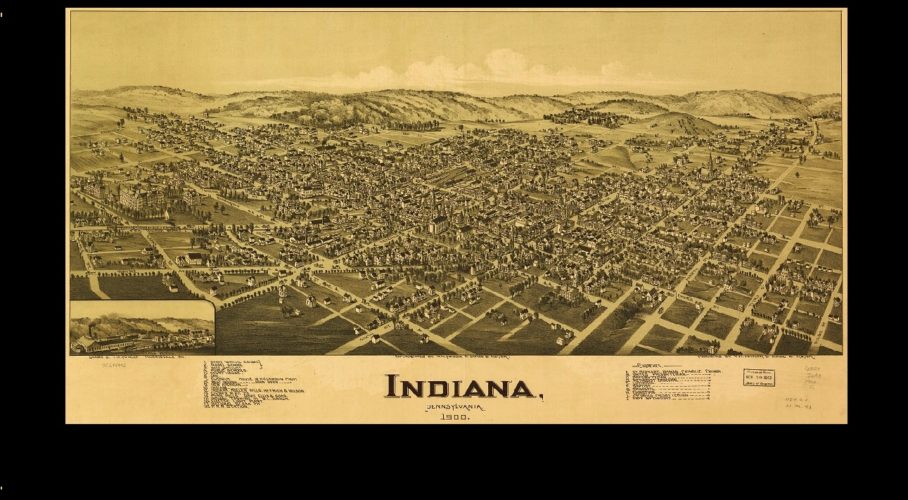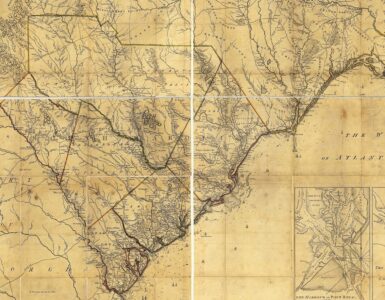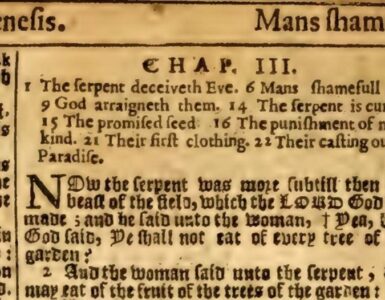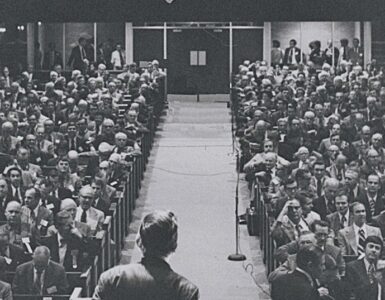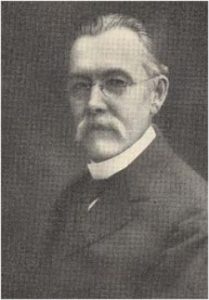 Robert Dick Wilson was born to Anna Graham (Dick) and Andrew Wilkins Wilson February 5, 1856 in Indiana, Pennsylvania. Andrew was a successful local merchant. Robert was taught to read by his mother before he began formal education at the age of four. When admitted to school the principal was amazed at the extent of the boy’s knowledge. As he matured, reading became his passion such that he was afflicted with bibliomania and his room was filled with books. The Wilsons were members of the Old School Presbyterian Church in town. Robert suffered from health problems throughout his life with illness often causing him to stay home from school, but his love of reading kept him not only on schedule with classes but sometimes ahead of the other students. In 1876 Robert graduated with his younger brother Samuel Graham Wilson from Princeton University. Their membership in the same class was due to Robert’s being kept back during his schooling because his absences were of such length that he could not meet attendance requirements. Even though Princeton Seminary abutted the University campus and ministerial students from the university often went to the seminary, Robert and Samuel instead began theology studies closer to Indiana at Western Seminary in Allegheny that fall. Wilson studied with B. B. Warfield and the two became good friends.
Robert Dick Wilson was born to Anna Graham (Dick) and Andrew Wilkins Wilson February 5, 1856 in Indiana, Pennsylvania. Andrew was a successful local merchant. Robert was taught to read by his mother before he began formal education at the age of four. When admitted to school the principal was amazed at the extent of the boy’s knowledge. As he matured, reading became his passion such that he was afflicted with bibliomania and his room was filled with books. The Wilsons were members of the Old School Presbyterian Church in town. Robert suffered from health problems throughout his life with illness often causing him to stay home from school, but his love of reading kept him not only on schedule with classes but sometimes ahead of the other students. In 1876 Robert graduated with his younger brother Samuel Graham Wilson from Princeton University. Their membership in the same class was due to Robert’s being kept back during his schooling because his absences were of such length that he could not meet attendance requirements. Even though Princeton Seminary abutted the University campus and ministerial students from the university often went to the seminary, Robert and Samuel instead began theology studies closer to Indiana at Western Seminary in Allegheny that fall. Wilson studied with B. B. Warfield and the two became good friends.
Robert’s susceptibility to sickness led to an extended illness causing him to graduate Western a year after his younger brother Samuel. The Western faculty encouraged Wilson to become a teacher with the prospect of joining the seminary faculty, so during his extra year on campus he was an instructor. Wilson’s forte was languages. He had mastered several at Princeton and with his emphasis on Biblical studies at Western, he acquired languages like a sponge and went to Germany to learn Babylonian as well as nine other ancient languages. It is said that C. S. Lewis decided to read some Icelandic sagas, so he managed to locate the published tools required and learned the uncommonly rare language—Wilson had that type of linguistic interest and discipline. When he returned to Western, a job awaited.
Wilson began teaching in 1883 and was inaugurated a professor in the Old Testament department in 1886. His inaugural lecture was “The Date of Genesis 10” in which he defended an early date for composition of the chapter by means of philological analysis. During his tenure he acquired languages one after another. His writings at Western included a Hebrew vocabulary manual, articles on Aramaic usage and interpretation, and a Syriac grammar. In 1900, Wilson returned to the village of Princeton to become one of the few seminary faculty members that were not alumni. During his inaugural Wilson’s friend B. B. Warfield provided a hymn sung to the tune of St. Anne, “How Glorious art thou, O Our God.” Wilson’s lecture was “The Lower Criticism of the Old Testament as a Preparation for the Higher Criticism.” It showed his concern for defending the integrity of the Biblical text and authenticity of its sources. Officially now a member of the Princeton Seminary faculty, Wilson would serve a number of years studying and teaching while defending the authenticity and divine origin of the Word of God.
His most popular publications included Is the Higher Criticism Scholarly? which was issued in several editions including English and foreign languages. His concern in Scholarly was to provide Christians with confidence that the Bible is in fact the Word of God just as it claims to be. During the Princeton Seminary years he published often in scholarly journals and continued acquiring new languages for his study of Old Testament texts as well as the texts of other ancient civilizations. Consistent throughout his career was an apologetic thrust as he gave answer to the documentary critics of Scripture by defending topics such as Mosaic authorship of the Pentateuch, the age and authorship of the book of Daniel, and the importance of simply believing what the Bible says about itself and its authenticity as God’s Word. A theory running throughout Scientific that is fundamental to higher criticism is the documentary hypothesis. Old Testament academics during Wilson’s era, for example, theorized that at least a dozen redactors (editors, compilers) composed the Pentateuch from a number of non-extant sources dated centuries later than the traditionally accepted date for writing the five books. These theoretical later dates postdate the life of Moses, so it follows, according to the critics, that Moses could not have written the Pentateuch. Wilson observed that the source theories falsely contended that Moses and Joshua had little or no part in composing the books bearing their names. Some readers may recognize the JEDPH acronym which is a version of the documentary hypothesis applied to the Pentateuch and Joshua. Wilson defended the unity of the Pentateuch and its authorship by Moses as well as the fact that Joshua wrote the book bearing his name.
Wilson had a wonderful tenure at Princeton Seminary and was one of the most respected faculty members on campus. He was the grand old man and greatly loved by his students. However, changes at Princeton Seminary led to Wilson leaving in 1929 to join other faculty and students in the founding of Westminster Theological Seminary in Philadelphia. Wilson taught for the new seminary’s first academic year, 1929-1930, and attempted to begin the fall session, 1930-1931, but was too weak. He passed away from a combination of causes in Presbyterian Hospital October 11, 1930. His remains were taken to Indiana and buried in Oakland Cemetery.
While teaching at Western Seminary he was given an honorary PhD from Princeton University, 1886, then in 1894 the Doctor of Divinity was bestowed by Lafayette College. Wilson was also honored by the University of Wooster with the Doctor of Letters, 1919. Ellen Howard of Richmond, Virginia, and Wilson were married June 20, 1889, and she survived him. Their daughters were Eleanor, Jane Pope, Sarah Bruce, and Anne Elizabeth. The only son, Philip Howard, died while studying in Germany after graduation with honors from Princeton University, 1911. He was a member of the Society of Biblical Literature, the International Congress of Orientalists, and the Pennsylvania Scotch-Irish Society. Wilson was a popular speaker in not only Presbyterian churches and retreats but also college and interdenominational conferences.
Barry Waugh
Notes—The header image of Indiana, Pennsylvania dated 1900 was made by T. M. (Thaddeus Mortimer) Fowler and James Moyer and is from the Library of Congress digital collection via Wikimedia Commons. The portrait is from the PCA Historical Center, Wayne Sparkman, director.


